Your skin is made up of three main layers; the deep subcutaneous fatty layer, the thick middle dermis, and the thin outer epidermis. The upper layer of the epidermis is known as the stratum corneum. It’s made up of dead skin cells, along with lipids, proteins, and fats. They all lock together, almost like a brick wall, to create your skin barrier.
This barrier performs several crucial roles when it comes to keeping your skin healthy. Unfortunately, it doesn’t take much for this barrier to end up damaged, which can then lead to a whole host of problems. How do you know if your skin barrier has been compromised? Keep reading as Lionesse explains!
Why is the Skin Barrier So Important?
Your skin barrier is primarily made up of dead cells. This means that unlike the rest of your skin, which is classed as a living organism, your skin barrier isn’t alive. This may make it seem unimportant, but this isn’t the case at all. Instead, your skin barrier performs some very crucial roles…
First and foremost, it protects your skin from the environment. Think of it like a coat of armor. The living cells that lie beneath it are easily damaged by everything from chemicals to infectious bacteria. Without your skin barrier, these impurities would seep into your skin’s living layers and wreak havoc. Your barrier is your skin’s main line of defense against those potential forms of damage.
Something else that’s integral to the functioning of your skin is water. From the water that you drink to the moisture that you apply topically, water is needed for every single process that occurs in the skin. Without your skin barrier, your skin wouldn’t have enough of it due to how water quickly evaporates out of the skin. The extra seal over your skin’s surface provided by your skin barrier helps to prevent this, keeping water trapped in.
Is Your Skin Barrier Compromised?
There are a few different signs that indicate a compromised skin barrier. You may only experience one or two of them if your barrier damage is minimal. However, if your barrier has been severely harmed, you’ll likely notice several of the following:
- Dull, dehydrated skin – since a compromised skin barrier won’t be able to retain moisture in the same way, it doesn’t take long for the skin to end up dehydrated. This will cause it to look dull and also feel itchy.
- Stinging and sensitivities – if your skin stings or feels sensitive when you apply even a gentle product to it, this is a sign that your skin barrier isn’t functioning as it should.
- Inflammation and breakouts – your skin barrier helps to keep your skin in balance. When it isn’t working properly, sebum production can increase, along with inflammation. This then leads to a rise in acne breakouts.
- Flaky and peeling skin – skin cell turnover can sometimes speed up when the skin barrier is damaged. This can cause the skin to look flaky, with peeling patches that don’t improve even after a moisturizer has been applied.
How to Make a Damaged Skin Barrier Feel Strong and Healthy Again
It goes without saying that if your skin barrier is damaged, you need to take the necessary steps to rectify this. Here’s what you should be doing if you want your skin barrier to feel strong and healthy once again:
Use a Gentler Cleanser and Exfoliator
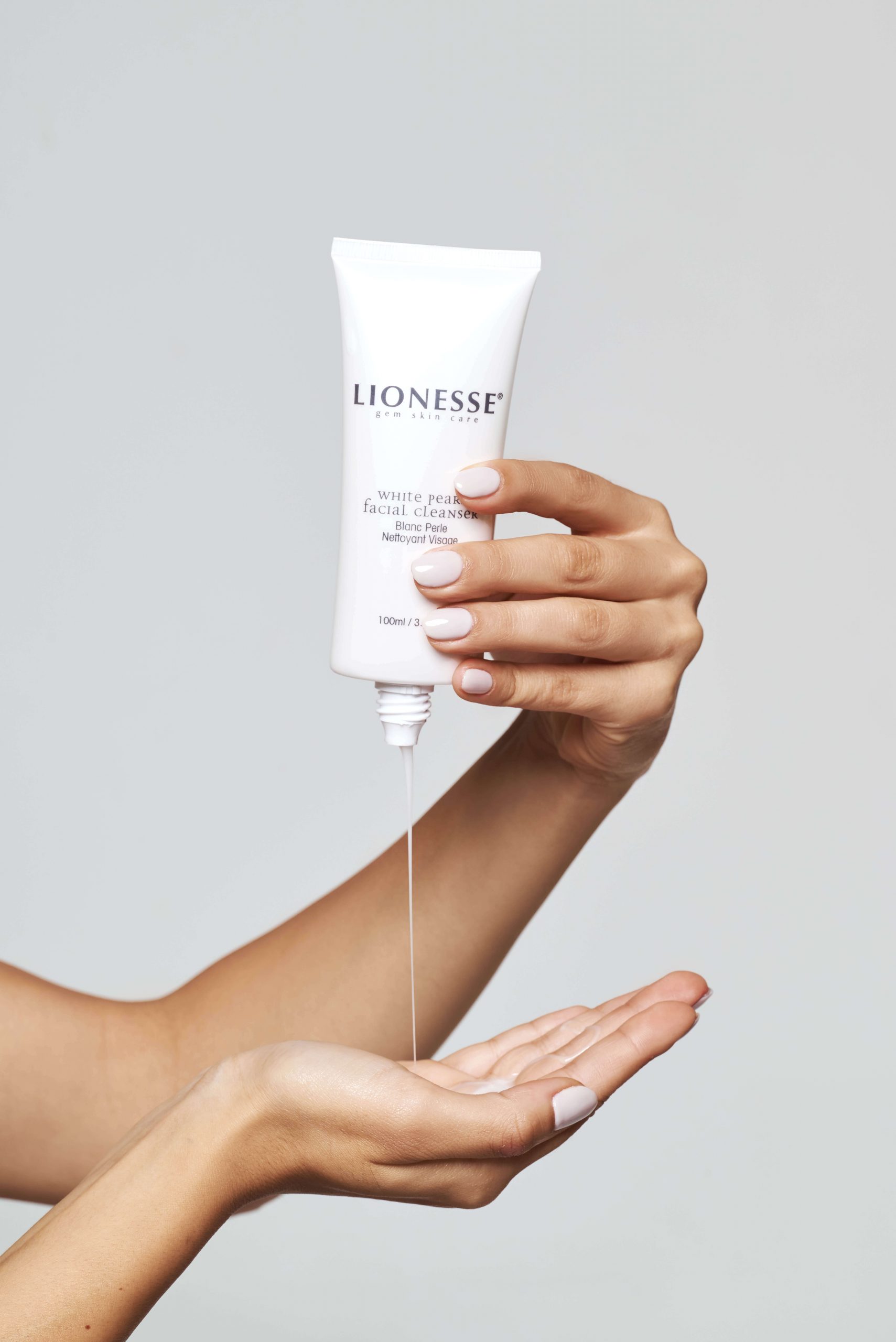
One of the most common causes of skin barrier damage is over-cleansing or over-exfoliating. Both strip away that protective layer on the surface of your skin, leaving the vulnerable living skin cells beneath exposed.
Over-cleansing and over-exfoliating can occur in two ways; cleansing/exfoliating too often and using a cleanser/exfoliator that’s too harsh for your skin.
Let’s start by addressing the first. There’s a simple solution to this; stop cleansing/exfoliating so much! Usually, twice a day is sufficient for cleansing. However, if your skin barrier is now damaged, you may want to cut this back to using a cleanser in the evening followed by washing your face with just water in the morning. In terms of exfoliating, limit this to just once or twice a week once your skin has healed. Until then, hold off on the exfoliation for a while.
Using gentle products is key too. Find yourself a cleanser that doesn’t contain any harsh surfactants, just like the Lionesse White Pearl Facial Cleanser. It features coconut-derived cleansing agents along with moisturizing oils and soothing botanical extracts to keep your skin barrier feeling supported.
For your exfoliator, avoid high concentrations of potent acids, as well as overly abrasive ingredients. Look for one that focuses on gentle exfoliation, such as the Lionesse White Pearl Facial Peeling.
Keep the pH of Your Skin’s Surface Balanced
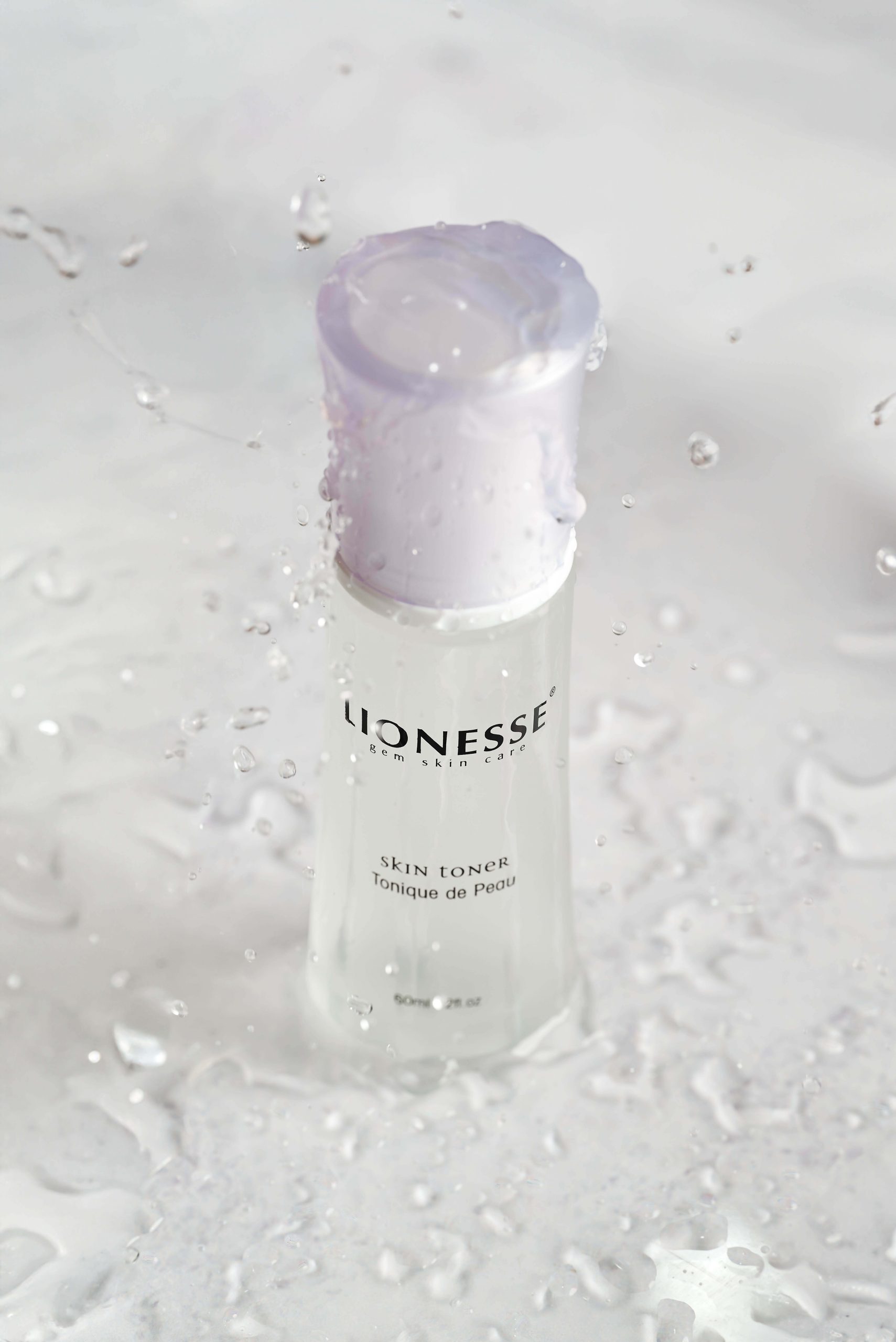
If the pH of your skin swings toward either the acid or alkaline end of the scale, this spells bad news for your skin. An imbalanced pH quickly interferes with skin barrier function, leading to the symptoms described earlier.
How can you keep your skin’s pH feeling balanced? One easy way is to start using a toner after cleansing or exfoliating. Toners are designed to do just that – rebalance the pH level of the skin’s surface, since this can often be affected by cleansing and exfoliating.
For even more benefits, use a toner that will tackle the other visible symptoms you’re experiencing. The Lionesse White Pearl Skin Toner, for example, will not only help with surface pH but is also extremely hydrating. If your skin barrier is compromised, extra hydration is exactly what it needs! Plus, with a blend of aloe vera, chamomile, cucumber, and allantoin, this toner will also help to soothe the look of redness and inflammation while reducing the feeling of irritation and sensitivities.
Simplify Your Skincare Routine
A damaged skin barrier will struggle to tolerate a long and complex skincare routine. Each product that you apply to your skin increases your chances of dealing with sensitivities and negative reactions. Any powerful active ingredients will do this too. This is why, in order for your skin barrier to heal, you need to strip back and simplify your skincare routine.
How? By using only the very basic products for a while. A cleanser is a must and a toner can be helpful. However, stay away from any unnecessary essences, serums, and other treatments for now. A moisturizer is another essential, as is SPF. Everything else can be left to the side until your skin barrier has had a chance to heal.
Prioritize Barrier-Loving Ingredients
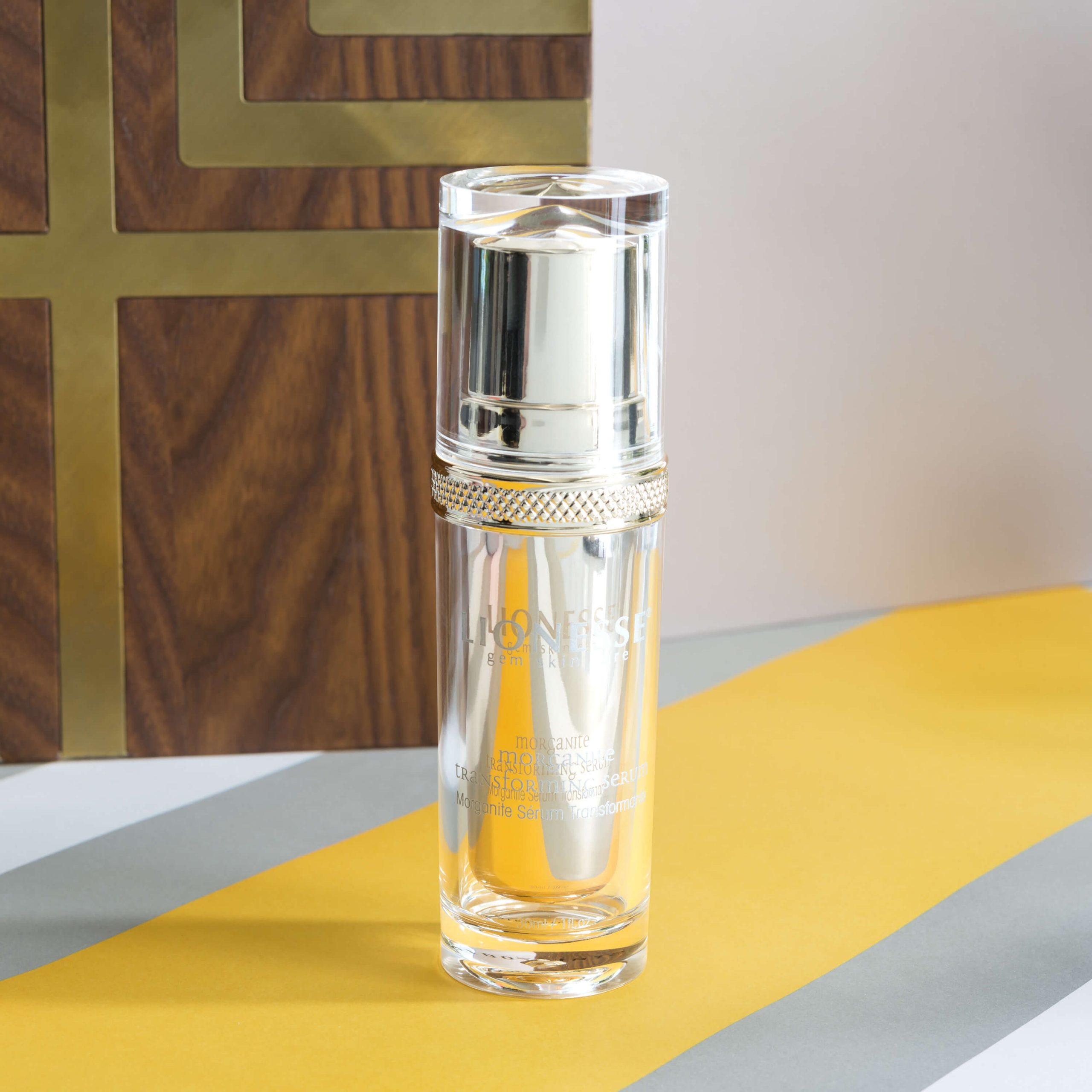
There are certain skincare ingredients out there that are known for how they leave the skin barrier feeling boosted and stronger. It goes without saying that these ingredients should definitely find their way into your skincare routine!
Hyaluronic acid, or sodium hyaluronate, is one. This is one of the most hydrating ingredients around. It will immediately give your skin barrier a thicker and plumper finish while providing the moisture that it needs to function more efficiently.
Peptides are also a game-changer. Not only do they soothe the feeling of inflammation but they’ll also ensure that your skin barrier feels strong and intact.
Plant oils can help with this as well, as can vitamin C. However, with the latter, you need to be careful. Potent forms of vitamin C will only irritate your compromised barrier. Fortunately, there are plenty of gentle vitamin C derivatives available.
One serum that offers all of the above is the Lionesse Morganite Transforming Serum. Add it to your evening skincare routine and it won’t be long before your skin starts to look healthier and happier.
Protect Your Skin From the Environment
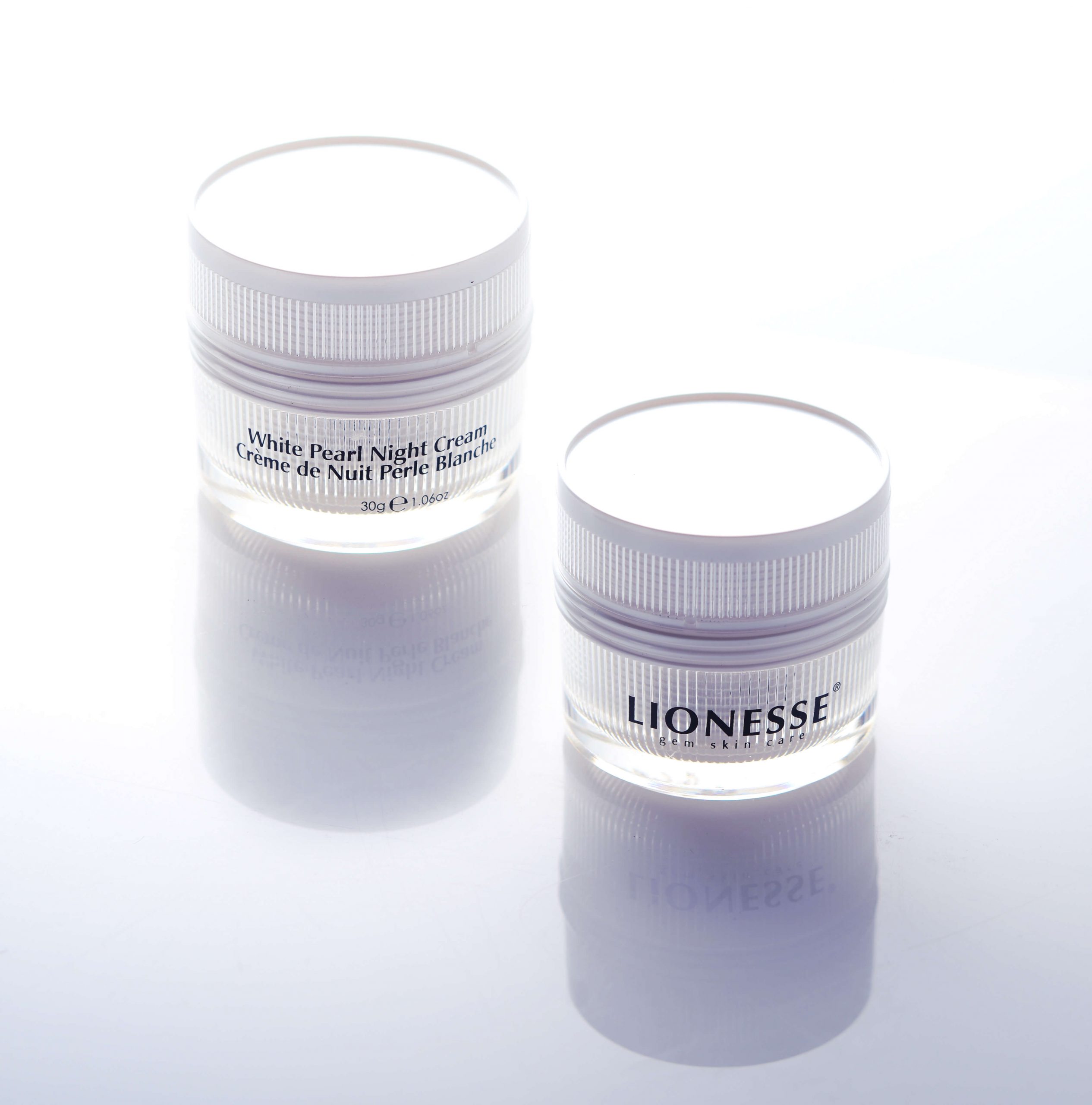
Even if you endeavor to take the best possible care of your skin, the environment will be working against you. Between UV rays, pollution, and the weather, there’s so much out there that’s constantly trying to harm your skin barrier.
What can you do about this?
Firstly, incorporate a good sunscreen into your skincare routine. A mineral sunscreen will not only save your skin barrier from undergoing UV damage but it will also help to keep the visible effects of pollution at bay.
In terms of shielding your skin barrier from the weather, a moisturizer can work wonders. Again, pick a product that contains barrier-loving ingredients, such as the Lionesse White Pearl Night Cream. With shea butter combined with a blend of hydrating ingredients, it will quickly leave your skin feeling supple and incredibly strong.
Don’t Stress So Much
Did you know that stress can seriously impact skin barrier function? Whenever you’re stressed, your body releases a hormone called cortisol, which doesn’t do your skin any favors. Research shows that it causes a number of issues, including damage to your skin barrier.
Learning how to keep your stress levels at a low will go a long way in keeping your skin feeling at its best. Find a few stress-busting techniques that you can turn to whenever stress levels start to soar and your skin will thank you!
How Long Does it Take to Heal a Compromised Skin Barrier?
It’s understandable that you would want to see improvements in your skin as soon as possible, especially considering the many problems that a compromised skin barrier can cause. However, when it comes to healing this damage, you’ll need to be patient…
If you’re young and otherwise healthy, you may start to notice a difference in your skin after just a few weeks. However, as you age, it takes longer for your skin barrier to bounce back from damage. Your barrier may need three or four months to get itself back into balance. This means following all of the above tips for that length of time. Once your skin feels healthier again, you can then start to introduce more products into your skincare routine, but be careful not to cause any new damage to your precious barrier!
Summary
Once your skin barrier is damaged, it’s important to do what it takes to help your skin barrier feel restored and whole once again. Whether this takes a few weeks or a few months, you’ll then need to be very careful with your skin to ensure that you’re able to maintain that healthy feeling instead of causing even more damage again in the future.
Click here to treat your skin barrier to more exquisite bestsellers from Lionesse.





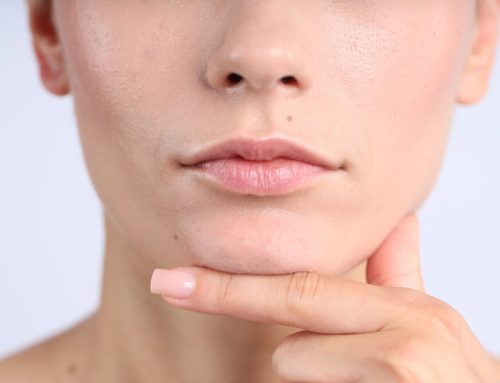



Leave A Comment